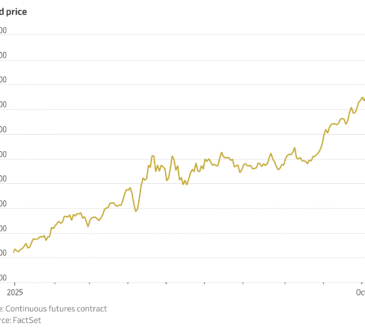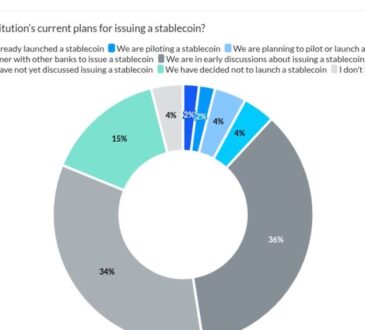
Feras Moussa is the Cofounder and Managing Partner of Disrupt Equity.
Working in the investment world, I’ve learned that “private equity” means different things to different people. For some, it signals high risk. For others, it’s a mysterious club reserved only for the ultra-wealthy.
In reality, private equity is simply a way of investing outside the public markets. And for qualified investors, it can be a powerful tool for diversifying beyond traditional stocks and bonds.
Understanding Private Equity
At its simplest, private equity is the practice of putting capital into companies or assets that aren’t traded on public stock markets. Unlike stocks that can be traded tomorrow, private equity requires a multiyear commitment. Capital is often pooled by firms that specialize in creating value—whether turning around an underperforming business, fueling a high-growth startup or optimizing real estate for steady income.
PE firms pursue a range of strategies, including venture capital for early-stage startups, buyouts to improve established companies, distressed assets needing restructuring and real estate projects—from commercial to multifamily properties, which have become popular for their resilience and consistent returns.
The goal is to improve performance, scale assets and ultimately exit via a sale or public offering. The longer horizon demands patience but allows firms to create meaningful, lasting value.
Who Can Invest In Private Equity?
Because of the risks and the long time horizons, private equity isn’t open to everyone. The U.S. Securities and Exchange Commission (SEC) sets standards to ensure investors have the financial capacity to weather potential losses. To qualify as an “accredited investor,” the investor generally needs an annual income of at least $200,000 individually (or $300,000 with a spouse), or a net worth over $1 million, excluding their home.
These requirements protect newer investors who may not have the resources or experience to navigate such complex opportunities. For those who do qualify, the door opens to a side of investing that is less crowded than public markets.
The Benefits Of Private Equity Investments
Investors are often drawn to private equity for potential enhanced returns. Active management and longer horizons allow firms to improve performance and growth, though these investments carry higher risk and are less liquid than public securities. Private equity also supports portfolio diversification by including assets that behave differently than stocks and bonds, while many structures offer tax advantages such as pass-through income or deferred taxes.
Equally important is alignment of interests. By taking substantial ownership stakes or active management roles, firms ensure that their success is directly tied to the outcomes of those who invest with them.
Why Multifamily Real Estate Appeals To Private Equity Investors
I’ve noticed multifamily real estate has become a standout within private equity portfolios because it offers a combination of stability, resilience and efficiency that is hard to match in other asset classes. Rental income from apartment communities provides predictable cash flow, while the essential nature of housing keeps demand relatively steady, even during economic downturns.
Managing multiple units under a single property also creates operational efficiencies and economies of scale that single-family investments can’t replicate. Lease structures often include built-in rent escalations, helping to protect against inflation, and tax advantages such as depreciation and mortgage interest deductions can further enhance after-tax returns.
Together, these characteristics make multifamily housing an attractive option for investors seeking steady, risk-adjusted performance over the long term.
The Risks Of Multifamily Investing
Like other investments, it’s important to note that multifamily real estate carries risks. Oversupply can lead to higher vacancies or slower rent growth, while rising taxes, insurance and maintenance reduce income. Because projects often rely on debt, shifts in interest rates or lending standards can affect cash flow and returns. Local economic health, tenant protections and rent control can also shape performance and limit flexibility.
Liquidity is also limited. Unlike publicly traded securities, multifamily investments usually require a holding period of several years, with capital tied up until a property is refinanced or sold. Investors should consider their time horizon and overall financial plan before making any commitments.
Considerations For Working With Specialized Firms
For accredited investors, the journey begins with a clear understanding of their investment goals, risk tolerance and liquidity constraints—private equity typically requires a long-term commitment.
While there are other options, some investors choose to work with firms concentrating on this asset class, as they develop a nuanced understanding of sourcing, underwriting and managing multifamily investments. (Disclosure: My company specializes in this, as do others.) By prioritizing risk-adjusted returns and operational discipline, firms aim to create value that goes beyond general market trends. Deep familiarity with local markets, demographic changes and property-level best practices helps navigate different market cycles and contributes to consistent investor outcomes.
To find specialized private equity managers, investors can leverage trusted networks, attend accredited investor events and explore curated platforms. Events often offer networking and access to diverse private equity deals.
I recommend to focus on firms with transparent communication and shared interests. Do thorough due diligence before committing, and stay engaged by reviewing reports and tracking strategy.
Note that working with specialized firms also has its challenges. Fee structures can be layered, reporting standards are not always consistent, and access to strong opportunities may favor larger or established investors. Investors can address these issues by clarifying fees up front, reviewing sample reports and building long-term relationships.
Final Thoughts
Private equity opens doors to alternative asset classes and exclusive opportunities that can diversify portfolios and enhance returns. While it requires accreditation and patience, the potential rewards can be significant—especially with resilient assets like multifamily real estate. By understanding fundamentals, qualifications and benefits, investors can confidently expand their financial horizons.
The information provided here is not investment, tax or financial advice. You should consult with a licensed professional for advice concerning your specific situation.
Forbes Business Council is the foremost growth and networking organization for business owners and leaders. Do I qualify?





